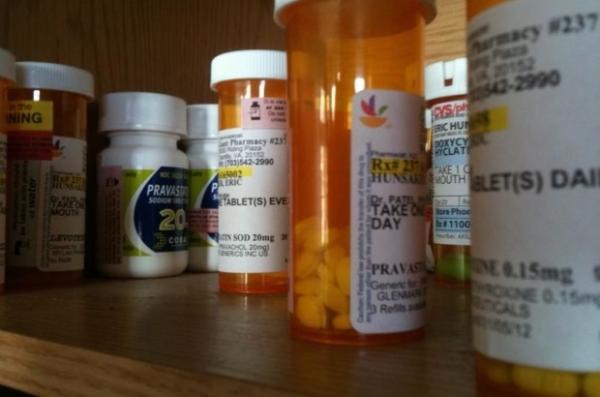The Costs of Drug Pricing Middlemen - CommonWealth Magazine

DATE: October 2, 2023
In the fight against ever-rising drug prices, attention is increasingly zeroing in on a little-noticed middleman of the pharmaceutical chain – pharmacy benefit managers.
Pharmacy benefit managers, or PBMs, are the intermediaries between pharmaceutical manufacturers and insurance providers. They negotiate drug prices, process claims, create lists of prescription drugs covered by insurance plans, and perform a variety of different functions. Three main PBMs control 80 percent of the market: Caremark (CVS Health), Express Scripts (Cigna), and OptumRx (United Health Group).
Critiques of PBMs tend to focus on their often out-of-sight price negotiation with pharmaceutical companies, including rebates or certain fees that can drive more revenue to the middlemen and raise drug prices.
Sree Chaguturu, executive vice president and chief medical officer of CVS Health, acknowledges that there is a need for more transparency in the way that PBMs operate, but argues that PBMs are essential market players in regulating prices.
“By creating transparency, we can continue to demonstrate that there’s a fundamental, a vital role [that PBMs play] in driving down pharmaceutical costs,” he said on The Codcast with John McDonough of Harvard’s T.H. Chan School of Public Health and Paul Hattis of the Lown Institute. “Transparency is important in understanding pharmaceutical pricing and how the dollars flow and the egregious practices of pharma in raising prices year on year. Millions of people benefit from the rebates or discounts that we negotiate from drug makers every day.”
The “rebates” in question are controversial. When PBMs negotiate drug prices with manufacturers, they bring an essential bargaining chip to the table – they decide how the drug will be tiered on the drug lists of the insurance plans they represent. Manufacturers present PBMs with two different figures: the drug price and a rebate on the price.
Theoretically, the rebate is meant to bring down the drug price and bring savings to consumers’ pockets. In practice, critics argue, many PBMs pocket the rebate, leading to higher rebates and higher prices to ensure both pharmaceutical companies and the middlemen profit.
Chaguturu said that Caremark passes 98 percent of its rebates back to customers. Hattis pushed back on this assertion, wondering how much of the rebate gets shared with consumers after CVS’s group purchasing organization takes its share.

CVS officer defends role of pharmacy benefit managers in drug pricing
State and federal legislators have proposed regulations that would promote transparency in drug pricing and rebates.
State Sen. Cindy Friedman has filed a bill that aims to enhance access to pharmaceutical medications through increased transparency. Among other things, the bill would require PBMs to become licensed in the state and report data to the Center for Health Information and Analysis about how rebate dollars are allocated. Chaguturu expressed support for the legislation, emphasizing both the need for transparency and for PBMs to drive down prices of prescription medicine.
“It’s important to note that PBMs are effective in creating competition that demonstrates the discounts and the high savings,” Chaguturu said. Without the competitive negotiations, he said, pharmaceutical companies would be left to their own devices and prices could spike even more.
The role of competition in drug pricing schemes led to a bit of back and forth. If competition drives down prices, McDonough asked, “why do Americans pay the highest prices for pharmaceuticals of any advanced nation in the world?”
According to McDonough, other countries, like Germany, don’t have anything akin to PBMs. An umbrella group of insurers negotiates with the manufacturer, “then the government takes the negotiated rate and sets the price at that level.”
That comes down to the way the United States decides to structure its approach to drug market capitalism, Chaguturu said.
“If we wanted to head in that direction, that would be a very different way of how our country has fundamentally operated its markets to date,” he said. “And I think that would be something that would be voted on at the voting booths.”
By Bhaamati Borkhetaria, Commonwealth, Monday, Oct 2, 2023
